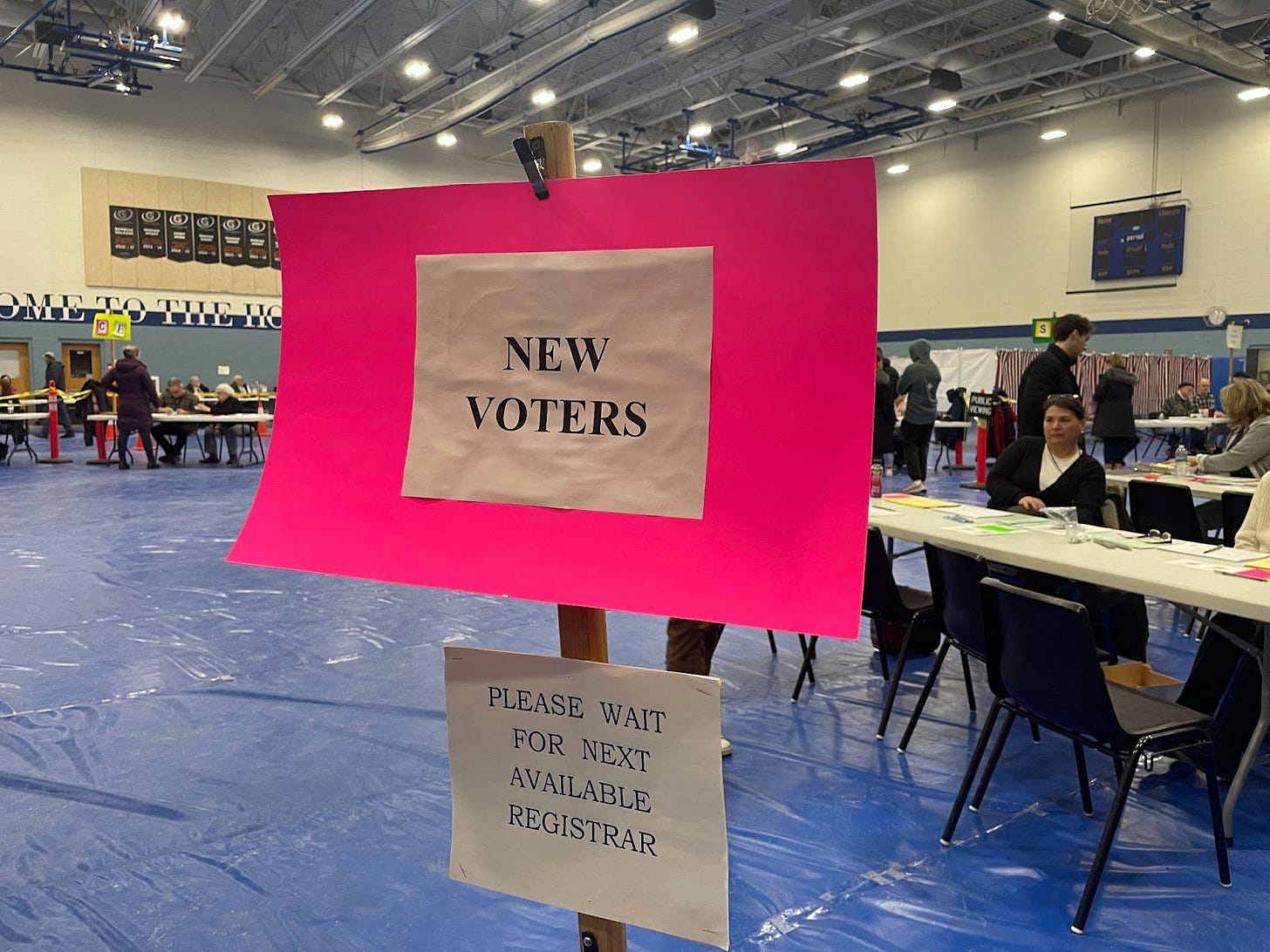Young voters keep options open by registering as independent
Many registered independents looking for candidates they agree with over party affiliation.
By Mina Allen, American University
MANCHESTER, N.H. – University of New Hampshire student Michael Bauer had originally intended to vote for Florida GOP Governor Ron DeSantis in Tuesday’s primary.
Bauer said he was attracted to DeSantis’ positions on small government and individual rights, even though he dropped out of the race before the vote. But as a registered independent, Bauer had the option to vote in either the Republican or Democratic primary,
Rather than follow a specific candidate from the start, he was looking for one who shared his views.
“I stayed independent, or undeclared, just so I could have that freedom to choose between different candidates if I wanted to,” said Bauer, 20, who was voting for the first time in a presidential primary. He cast his first vote during the 2022 midterms.
Bauer is part of a growing trend among younger voters. According to Axios, 52% of millennial and Gen Z voters claimed to be independent, compared to one-third of baby boomers. According to Gallup surveys, overall support for both the Republican and Democratic parties among independents split evenly at 28% each.
In 2019 the Pew Research Center found those who identified as independents leaned towards a party they generally agree with. Those that did not lean towards a particular party showed very little interest in engaging in politics.
Today, young voters are choosing to go independent to have the ability to choose candidates regardless of their party affiliation.

“I’m not particularly a fan of the two-party system, I’m an independent and I try to be independent where I can. I think voting should be based on merit rather than just party,” said Hannah Delong, a 22 year old agriculture student at the University of New Hampshire who is registered as an independent.
Delong, a first time voter, was looking for a candidate who shared her views on the environment and sustainable food systems – issues she believed were most important. For her that was third-party presidential candidate Robert F. Kennedy. She voted for Kennedy “to make him more known” as a possible option for voters.
“I know he’s lesser known, but I can exercise my freedom to vote for the candidate I want even if that’s not the top candidate,” Delong said.



